Neuroscience
-
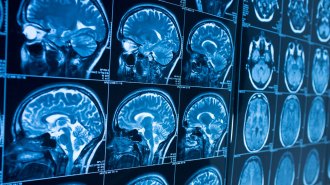 Life
LifeElectrodes show a glimpse of memories emerging in a brain
Nerve cells in an important memory center in the brain sync their firing and create fast ripples of activity seconds before a recollection resurfaces.
-
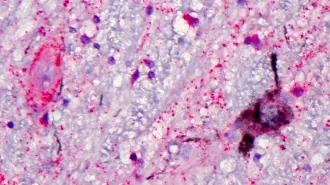 Life
LifeAlzheimer’s targets brain cells that help people stay awake
Nerve cells in the brain that are tied to wakefulness are destroyed in people with Alzheimer’s, a finding that may refocus dementia research.
-
 Humans
HumansEven without concussions, just one football season may damage players’ brains
A group of college football players underwent brain scans after a season of play. The results suggest the sport could impact neural signaling.
-
 Neuroscience
NeurosciencePlants don’t have feelings and aren’t conscious, a biologist argues
The rise of the field of “plant neurobiology” has this scientist and his colleagues pushing back.
-
 Neuroscience
NeuroscienceA frog study may point to where parenting begins in the brain
Two brain regions, including one active in mammal parents, lit up with activity in both male and female poison frogs when caring for their tadpoles.
-
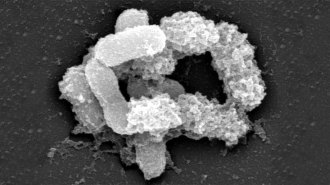 Neuroscience
NeuroscienceBoosting a gut bacterium helps mice fight an ALS-like disease
Gut bacteria may alter ALS symptoms for good or ill.
-
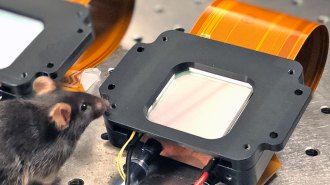 Health & Medicine
Health & MedicineManipulating nerve cells makes mice ‘see’ something that’s not there
Using optogenetics to stimulate about 20 nerve cells causes mice to perceive nonexistent vertical or horizontal lines.
-
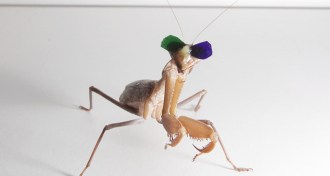 Health & Medicine
Health & MedicineTiny glasses help reveal how praying mantises can see in 3-D
Newfound nerve cells in praying mantises help detect different views that each of the insects’ eyes sees, a mismatch that creates depth perception.
-
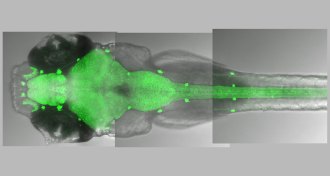 Neuroscience
NeuroscienceBoth fish and humans have REM-like sleep
Sleeping zebrafish have brain and body activity similar to snoozing mammals, suggesting that sleep evolved at least 450 million years ago.
-
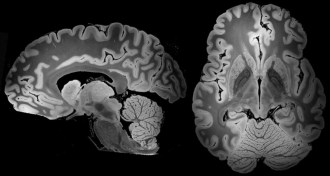 Neuroscience
NeuroscienceA 100-hour MRI scan captured the most detailed look yet at a whole human brain
Researchers report ultraprecise imaging of a postmortem human brain.
-
 Planetary Science
Planetary ScienceReaders wanted to know about asteroids, lithium batteries and more
Readers had questions and comments about asteroids, lithium batteries, and pyroclastic flows.
-
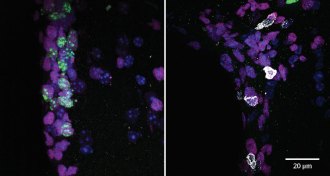 Health & Medicine
Health & MedicineRogue immune cells can infiltrate old brains
Killer T cells get into older brains where they may make mischief, a study in mice and postmortem human brain tissue finds.